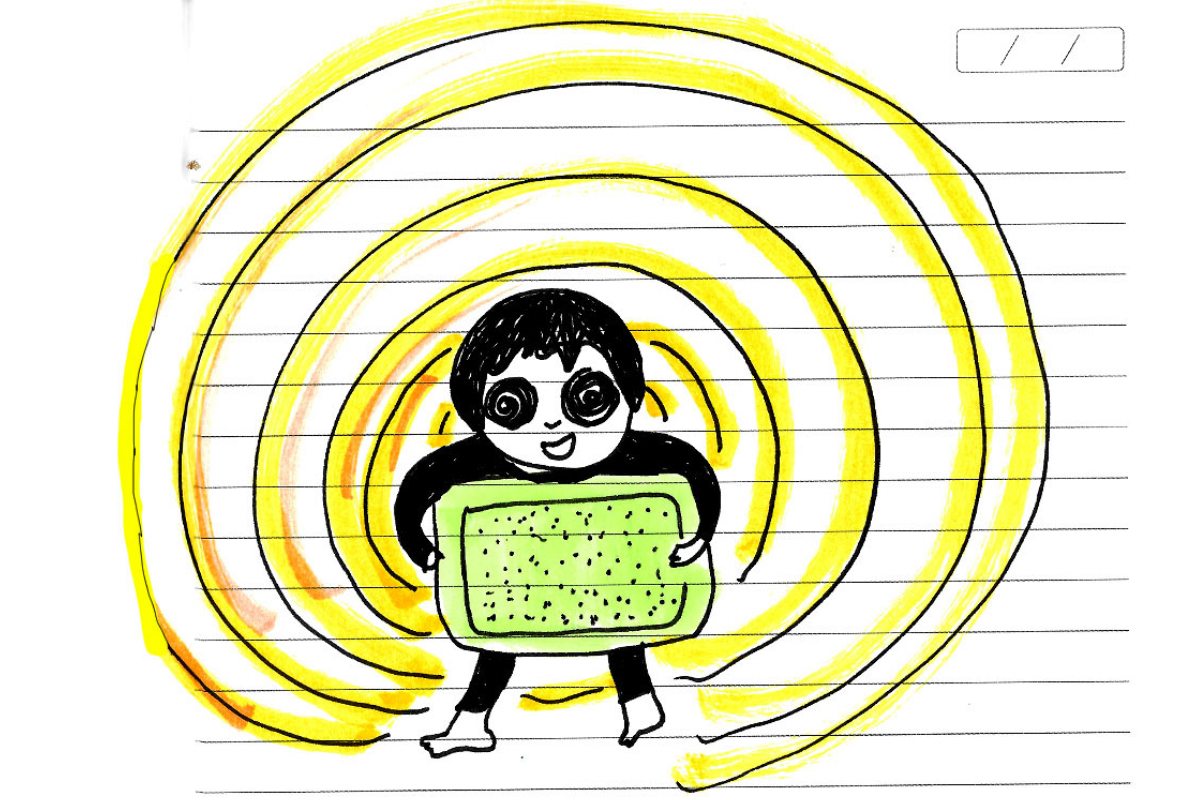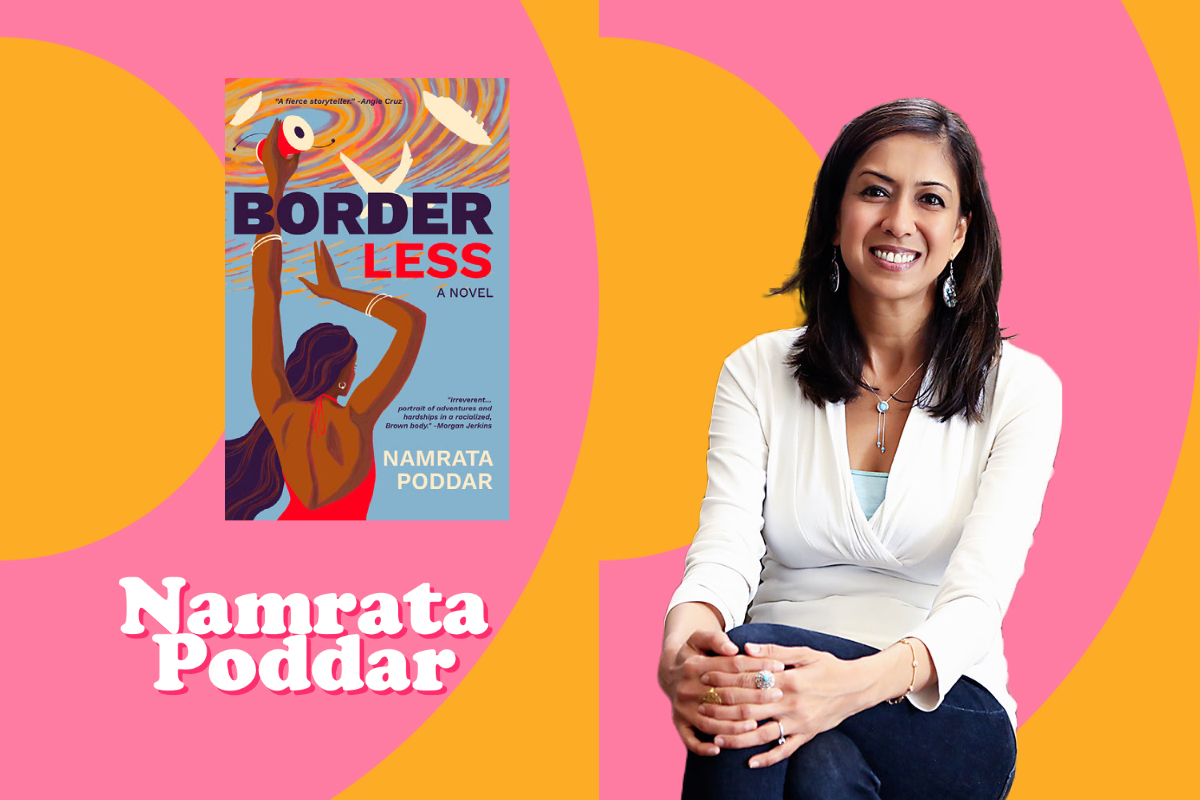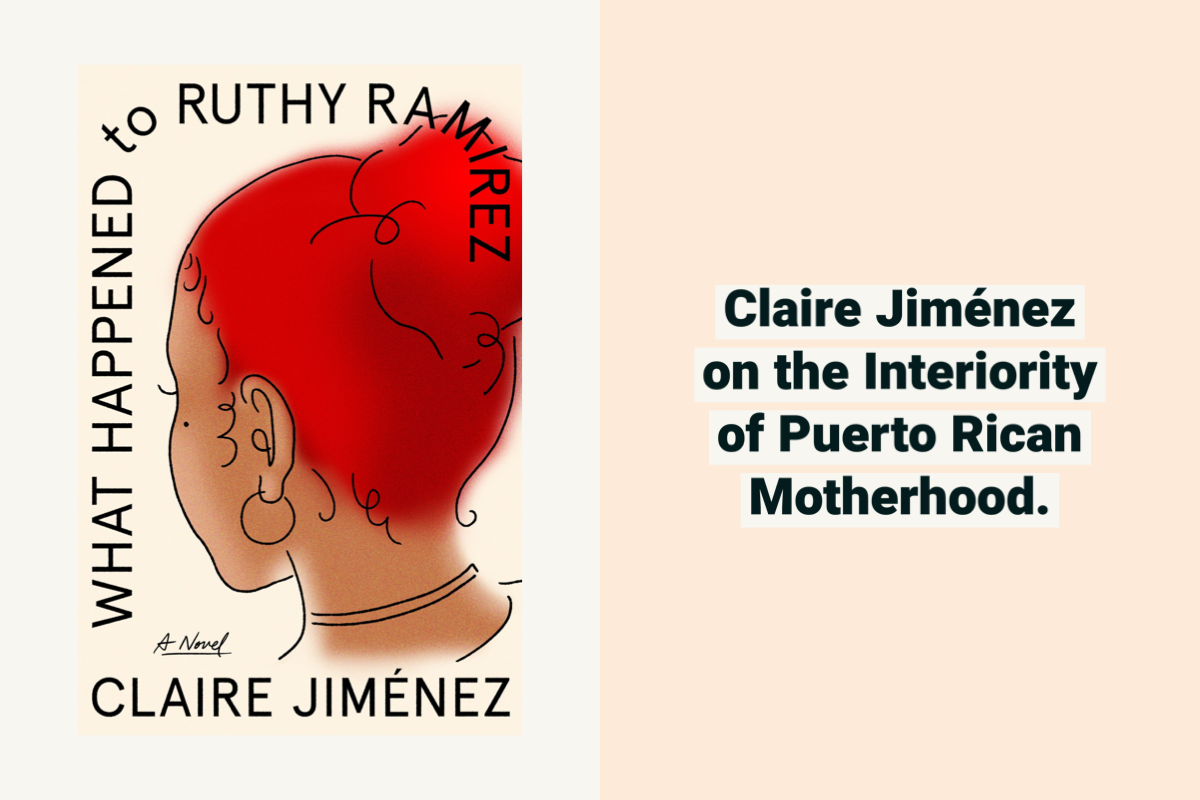In Claire Jiménez’s debut novel, What Happened to Ruthy Ramirez, we meet a Puerto Rican family from Staten Island. It’s 2008 and Dolores Ramirez and her daughters, Nina and Jessica, have been living with a gaping hole for more than a decade. Ever since Ruthy – Dolores’ headstrong middle child – disappeared after school at just 13 years old.
Then one day, Jessica notices a woman on a reality TV show who looks just like her long-lost sister. Could it be the real Ruthy?
As I read this novel, I was struck by the deep care the Puerto Rican author took in building the alternating voices of the Ramirez women. They are unflinchingly honest, funny, and loyal. The matriarch Dolores, in particular, stayed with me. She is a mother who exercises tough love on her daughters, but also questions many of the decisions she’s made as a parent. A mother who, in all of her chapters, speaks directly to her Lord. And she’s a mother crippled by guilt over her missing daughter, yet has hope that they may one day reunite.
I interviewed Jiménez about her depiction of Puerto Rican motherhood in What Happened to Ruthy Ramirez, the resiliency of her characters, and how becoming a mom herself has impacted her writing life.
Congratulations on your baby and also your debut novel. How does it feel to have both out in the world?
It’s so funny because having the baby kind of eclipsed the novel, in that everything became the baby when the novel came out. This is my first child. I knew that having a baby was going to be difficult, but I didn’t realize how much it was gonna take over; not being able to sleep and making sure they’re fed. I had no idea that breastfeeding was gonna be harder than getting my PhD, right? It took over my life.
Then it was like, ‘I have my child. Oh! And then I have this book!’ [Laughs] I was spending a lot of time trying to balance both of those important parts of my life, but mostly I was learning how to be a mother. And I was learning how to be a mother while also graduating from my doctoral program. It was a lot of things at the same time.
I understand you began writing What Happened to Ruthy Ramirez a decade ago, before you became a mom. What was your relationship with time like when you began this story – in terms of carving out time for your writing?
Now I look back on it, and I had so much more time. I struggle to squeeze in a shower at the end of the day, to have 15 minutes for myself. Whereas when I was a graduate student, I thought, ‘Oh my God, I have so little time. I’m teaching, and I’m working these extra jobs, and I’m trying to graduate school, and I’m working on this book.’
It was true that I didn’t have a lot of time, but your time when you have a child is so much more limited. You’re tired. You’re up at night with the baby and then, when the baby finally falls asleep, you have to make the choice: Am I going to sleep with the baby, or am I going to get a little bit of writing in? Or am I going to take a shower? You’re constantly juggling and making these choices.
There’s the level of energy it takes to take care of your child. And you have to think: ‘What is my energy level at the end of the night? Do I even have it in me to think of words?’ But now here you are, a whole ass mother when your book is released to the world. How has motherhood impacted your relationship to time and writing?
I have to make sure that everything is ready to go when I’m writing, and I’m much more intentional now about what that means. That might mean a cup of coffee. That might mean that I’m not gonna sit around and look through Twitter or answer some emails – pretending I’m gonna write. It’s like, ‘You have 30 minutes. You’re gonna make it work. Get a paragraph done.’ I set intentions for that time, and set larger goals.
Whereas before, I was very much like, ‘Oh, we’ll see what happens. I’m gonna sit and write. Maybe I’ll look outside the window for a little bit.’ Now because time is so limited, I have to be very focused. And I’ve noticed that I actually get a lot more done within the time that I have.
You were talking about having the energy. Sometimes it’s a choice of, in order for me to be a good writer, I need to make sure that I get into the shower. Or that I feed myself. Sometimes the work of being a writer when you’re a mother is also making sure that you’re practicing self-care, so that you can come to the desk whenever you do.
Some authors call their books their “babies,” and some mother-writers call their books their “baby” alongside their human children. You spent years nurturing and growing What Happened to Ruthy Ramirez. Do you consider the novel your baby, in a way?
Before I had a baby, I considered it a baby [Laughs]. I was like, ‘I created it.’ Now that I have a baby, I’m like, ‘Oh, this is a baby.’ It’s interesting because before I had a child, everything to me was being a writer. Everything was about getting this book done. The stakes felt so high.
Now that I have a child, it’s what’s important to me. Yes, my identity as a writer is incredibly important to me. But it’s like the focus has shifted in such a way that it doesn’t feel so life or death when it comes to this book specifically, or any writing project. I can’t say for other people, but it’s been healthier for me as a writer because the literary world could be toxic at times. Knowing what is important is my son and my home reminds me of this Toni Morrison quote, where she was describing what her father had told her growing up. Basically it was like, in this home this is the real world. This is what you come to. Everything outside, that’s noise.
If I see something BS happening about the book, or the literary world, or writers behaving badly, that stuff is less interesting to me than making sure my son is fed.
I want to talk about Dolores, your novel’s matriarch and a very complex character. She’s still struggling with the disappearance of her middle child, all while trying to be there for her other two daughters. She’s also like the queen of tough love. Where did you draw inspiration from for this character?
From so many women that I’ve met in life, some who are family and some who are found family. When I was writing the book, I spent a lot of time listening to old oral histories. Centro – the Center for Puerto Rican Studies at Hunter College – has this wonderful archive of interviews from different Puerto Ricans who migrated to New York decades ago – in the 20s, or the 30s. Some of these older women speak, and sometimes the children. I would listen to them a lot to think about how they spoke, because I was trying to understand the mother’s voice. The mother’s voice, for me, is very different than my voice, especially before I had my child. And so I was trying to really understand how is it that she approaches silences? How is it that she approaches grief?
That’s what I was thinking a lot about when I was constructing her character, but also: What is it like to lose your child, and to wake up every single day and not know where your child is? If they’re alive? If they’re dead? If they’re alive right now, and currently getting hurt? What type of hell is that? And now that I have a child, I’m like, ‘Oh my God, that would be devastating… How do you live?’
That was the real challenge of crafting her perspective, was thinking about what is the interiority of this woman. For me, the only way that that perspective made sense was that it would be this constant prayer. And it wouldn’t be the type of prayer that was like, ‘Oh, Dear Lord..’ It would sometimes be profane. It would sometimes be angry. Because I think that that’s how I would feel.
Is Dolores symbolic of Puerto Rican mothers?
It’s always tricky because there are many different types of mothers, and there are many different types of Puerto Ricans. And so whenever you say, ‘This is the Puerto Rican mother,’ there’s somebody who is like, ‘That’s not my experience.’ So I try to be careful, but I’ll say that for a lot of Puerto Rican mothers I know, she embodied a lot of the struggle that I saw growing up. This struggle of, ‘How do I protect my children? How do I raise them?’ There’s even this moment where she says, ‘How can I bear the weight of my own hands on my children’s bodies?’ This thing of discipline – do I make them more afraid of me than the streets? How do I make sure that they respect me first? But then what is the violence that I’m enacting on them. That is a conflict that comes up a lot when I talk to other Latinx people. They think about their parents and how they were raised, and what are the violences that get passed down, either because of migration, or poverty, or colonialism, or racism. What are the ways in which it affects what happens inside the home?
You do a wonderful job in showcasing the resiliency of Puerto Rican women. What was it like for you to put your community on the page in this way?
This was a very difficult book to write at times, and it was also a very joyful book to write at times. Like the scenes where Dolores and Irene and Nina and Jessica are in this club in the millennium in 2008. Those were fun sections to write, where we see these different Puerto Rican women across generations and how they relate to each other and their current world, and how they approach loss and getting what they want. That was joyful and fun.
And then there were a lot of painful moments because you know you’re dealing with the real topics of femicide, abuse, racism, and sexual assault. It’s interesting because sometimes I read these ridiculous comments where they’re like, ‘There’s too much happening here.’ And I’m like, ‘Yeah, welcome to my life. Welcome to the life of a lot of Black and brown people.’ That’s like every single day of their life. When we just want to get up and go get a cup of coffee, and then you have to deal with somebody’s ignorant ass.
Even in the difficult moments, I was proud to put the stories down. I was proud to get the voices out there, because the truth is, our voices aren’t out there a lot of times.
There’s a part of the novel in which the youngest Ramirez daughter, Nina, confesses that she’s always been afraid of her mom. Of Dolores, she says: “For so many years, it had felt like she was trying to overcompensate, for having kids so young or for growing up poor or for being Puerto Rican.” Can you talk through this idea of performing as a mother, and why you wanted to point this out on the page?
Even if you never become a mother, many young girls and women in Latinx households and communities grew up with the Virgin Mary. There’s this idea of the religious mother, and then there’s the mother inside of your house.
Being a mother gives you a type of power, right? And, in a way, mothers are revered until they’re not. So there’s this really complicated experience of being a mother, and a complicated power and vulnerability. I’m interested in how women may use that, like Dolores, for example: ‘I know that I’m able to put the baby asleep before you can put the baby to sleep. A mother knows. Oh, I’m the type of woman who will go out and I will fight for you. I will physically fight for my child.’ And that’s real. I know women who will physically fight for their child.
Now that I’m a mother, I’m still learning and trying to understand and wrap my head around all of this. But that was definitely a moment where there was a kind of clarity about Dolores and about Nina’s understanding of the relationship with her mother, and how she had seen her – that of course was complicated by race, colonialism, class, all that.
Another theme you touch on in your novel is mom guilt, which is such a real thing. Dolores has deep-seated guilt about Ruthy’s disappearance, and the ways in which she has raised her. Talk about this concept of mom guilt and how you approached it in your book.
It goes back to this idea of how do you raise your child? But specifically for somebody of Dolores’ generation who has experienced circular migration… and is dealing with the violence of displacement, being vulnerable, and not having necessarily the cultural currency or capital, at first, to protect your children. So how do you raise or protect your children? For many people, it’s with an iron fist.
Then there’s this question that surfaces inside the text, when she asks, ‘How can I bear to do that?’ She thinks about how her own mother dragged her out of a shower naked and beat her. And she says, ‘I never wanted that for my children because being beat like that made you feel like you didn’t deserve to fucking smile.’ So it’s navigating what is the degree to which I protect my children. What does protection look like? What is the right way to be? You see that she’s debating that in her head. That’s where that guilt churns throughout the novel.
What can readers expect from you next?
I have three projects I’m working on, and I’m going to see which one will win. Some writers plot before they write, and I’m the type of writer who needs to know how things sound before I write – and then the plot will follow for me. And so that’s what I’m working on right now, is figuring out the voice and where things are gonna go.
Claire Jiménez (she/her) is a Puerto Rican writer who grew up in Brooklyn and Staten Island, New York. She is the author of the short story collection Staten Island Stories (Johns Hopkins Press, 2019) and What Happened to Ruthy Ramirez (Grand Central, 2023). She received her M.F.A. from Vanderbilt University and her PhD in English with specializations in Ethnic Studies and Digital Humanities from the University of Nebraska–Lincoln. In 2019, she co-founded the Puerto Rican Literature Project, a digital archive documenting the lives and work of hundreds of Puerto Rican writers from over the last century. Currently, she is an Assistant Professor of English and African American Studies at the University of South Carolina.
<em><b>Thanks for reading!</b></em><span style=”font-weight: 400;”> Childcare costs $20/hour in most cities. If you enjoy Raising Mothers, join us as a sustaining member to help RM remain ad-free. Invest in amplifying the voices of Black, Asian, Latine(x), Indigenous and other parents of color at our many intersections. <em><b>Tiers start at $5/month.</b></em></span> <br><br>
<span style=”font-weight: 400;”>
Support Raising Mothers</span>

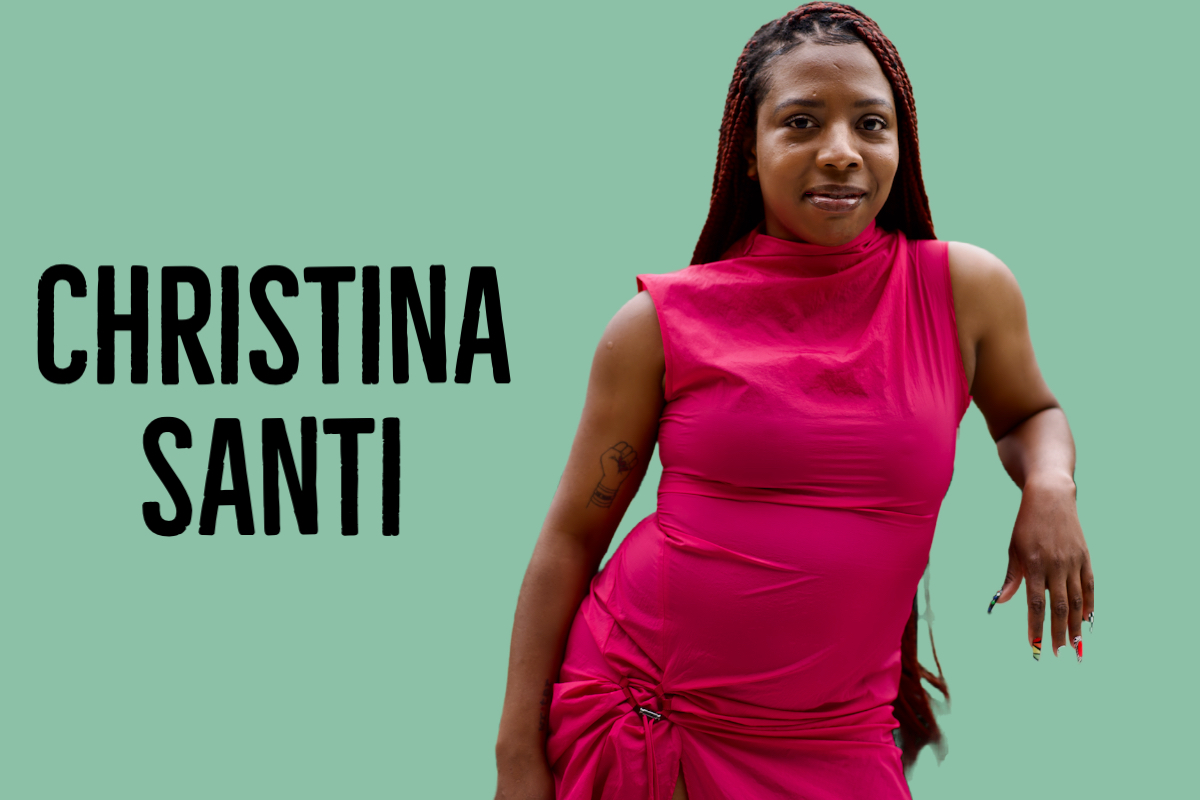
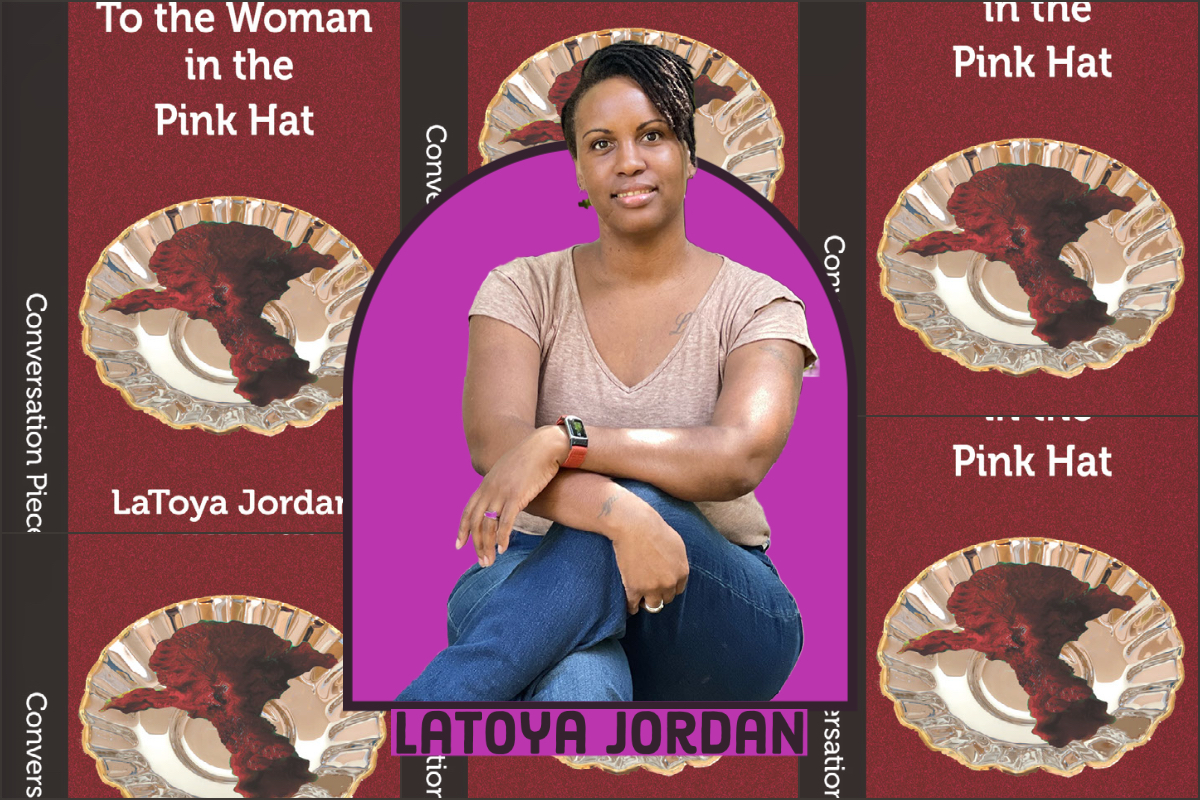

 RAISING MOTHERS: How many hours a day do you write? Break down your typical writing day.
RAISING MOTHERS: How many hours a day do you write? Break down your typical writing day.

